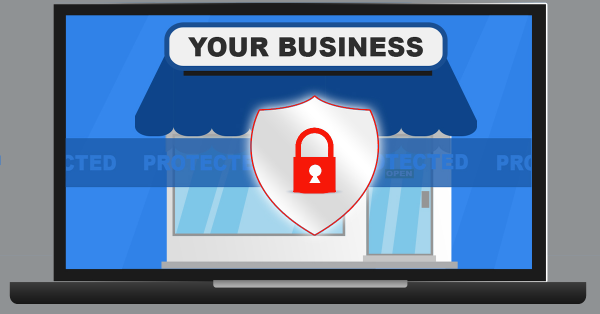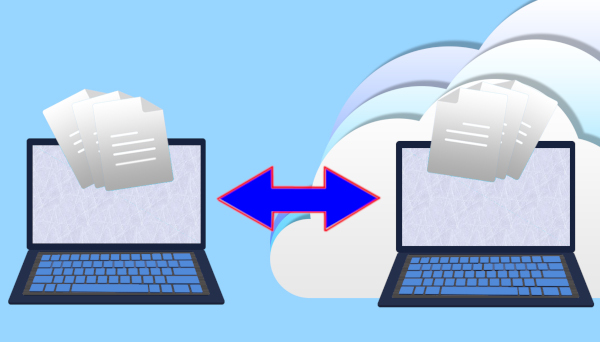We are tend to ignore or put off issues that we don’t know about, think are too hard to fix or believe it won’t happen to me. Here are some of the most common cybersecurity issues faced by SMBs that that could leave your business in danger if left unchecked. Continue reading
Tag Archives: backups
5 Ways to Enhance Strong Network Security for your Business
Even with the constant development of new and powerful security measures, there are still many businesses that fall victim to the wave of cybercrimes floating around the internet today. Continue reading
To Backup or To Archive? What is the Difference?

You know you need to secure your data, but how? This article examines the different benefits of both options. Continue reading
How to Protect Your Business & Your Customers Privacy and Security
 Security and privacy are at the very top of our priorities when considering your business IT needs. Major data leaks are now in the news on a daily basis and these leaks costs the companies thousands if not millions of dollars. Our number one goal is to make sure our clients and their businesses are kept out of danger to the best of our abilities.
Security and privacy are at the very top of our priorities when considering your business IT needs. Major data leaks are now in the news on a daily basis and these leaks costs the companies thousands if not millions of dollars. Our number one goal is to make sure our clients and their businesses are kept out of danger to the best of our abilities.
A New Year’s Tech Resolution To Stick To
 Most of us set goals, tasks, and challenges to tackle especially at the start of a new year. Cleaning out the house, checking for the best energy deals or promising to join a gym are some of the types of goals we set to improve our lives and build on our productivity and health in the future.
Most of us set goals, tasks, and challenges to tackle especially at the start of a new year. Cleaning out the house, checking for the best energy deals or promising to join a gym are some of the types of goals we set to improve our lives and build on our productivity and health in the future.
Resolutions to improve for the coming year are great things to aspire towards; whether they are organising your office, tidying your house, or taking control of your digital footprint. The problem though is motivation can quickly fall away by the end of January. If you manage to achieve only one of your goals for this year, make it to put a good data backup in place.
4 Ways to Avoid IT Downtime

Technology is a wonderful thing, but what happens when the IT stops working? In today’s world IT is a necessity. Unfortunately, this means when downtime inevitably hits, you have a BIG problem.
Maybe it’s from a malware or virus attack, a bug in the system, hardware failure or something else… Whatever the cause, the impact is real and measurable and you need it fixed ASAP. Research firm Gartner, reports that 43% of small businesses close their doors right after a major data loss, and only a tiny 6% survive long term. The financial cost of each hour can be in the thousands, and the damage to your brand could be irreparable. While downtime will occasionally strike every business, there are things you can do to minimize the duration, frequency and interruption to your business.
Taking a few simple actions now may result in your business staying open while your competitor gives up.
1. Use monitored antivirus and firewalls
While most businesses have these protections, not all have embraced the idea of monitored antivirus and firewalls. Instead most small business setups have more in common with a home network than a robust professional system. Given that SMB are a primary target for malware and cyber-attack, you should seriously consider moving to the monitored versions. Our experts set up custom protection to block all attacks, both known and emerging. All updates are taken care of and company-wide protections applied.
2. Have backups you can count on
A backup can not only protect you from digital threats like viruses and ransomware, they also protect you against physical threats like robbery, fire or natural disasters. The last thing you want is for your business to be crippled by data loss. A robust backup system can be as simple as asking our team to take care of it, or if you have an on-site technician, using the rule of 3: one backup on the server, one unplugged from the server, and one off-site. If anything ever goes wrong, you’ll be able to pull up the most recent backup and continue as normal. Businesses without good backups tend to be down for days, if not weeks. You also need to regularly test your backups to confirm they are working and also backing up the correct data.
3. Planning
Nobody likes to think about their business flooding or being hit with ransomware, but do you and your employees know what to do if the worst happens? Having a comprehensive Disaster Recovery Plan helps you get up and running quicker and minimises downtime. Everyone knows what their role is, what steps they need to take, who to tell and which systems take priority.
4. Monitor hardware for early signs of problems
Computer hardware is like any piece of equipment – when it’s getting old it will let you know! This could be anything from making noises, being louder or slower than normal or even system crashes. Each symptom is your early warning sign that allows you to take action before a crash that sends everything into downtime. We can even implement hardware monitoring to look for signs of impending issues. If the signs point to imminent failure, we can let you know and often repair or replace the affected hardware with little or no downtime.
Downtime is an unavoidable part of all modern businesses but your preparation can dictate whether it goes for one minute or one week and how often it happens. According to one study, most firms experience 43 hours average downtime per year, a number much too high for most peoples comfort. While scheduled downtime can sometimes be unavoidable, your business will appreciate being able to skip the panic of surprise downtime events. Reducing your risk is the best action you can take, making downtime a truly rare occasion. Even better, our Proactive or Managed Services can take care of this for you, stopping many downtime events before they occur.
Talk to us about ways to reduce your downtime. Contact us today on 08 8326 4364 or at su*****@dp*********.au.

